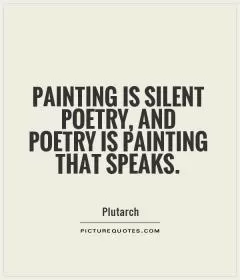The mind is not a vessel to be filled but a fire to be kindled

The mind is not a vessel to be filled but a fire to be kindled
Plutarch, the ancient Greek philosopher and biographer, once said, “The mind is not a vessel to be filled but a fire to be kindled.” This profound statement holds great significance in the realm of education and personal growth. Plutarch believed that the mind should not be seen as a passive receptacle for knowledge, but rather as a dynamic force that has the potential to ignite and inspire.In the context of education, Plutarch’s words emphasize the importance of fostering curiosity, critical thinking, and creativity in students. Rather than simply pouring information into their minds, educators should strive to spark a passion for learning and encourage students to think for themselves. By kindling the fire of curiosity and intellectual exploration, teachers can help students develop a lifelong love of learning and a thirst for knowledge.
Plutarch’s words also have relevance in the realm of personal growth and self-improvement. Instead of passively consuming information, individuals should actively engage with ideas, challenge their beliefs, and seek out new experiences. By approaching the mind as a fire to be kindled, individuals can cultivate a sense of wonder, curiosity, and intellectual vitality that can lead to personal growth and self-discovery.
Furthermore, Plutarch’s words remind us that the mind is a powerful tool that has the potential to transform our lives and the world around us. By nurturing our minds and feeding the flames of our intellectual curiosity, we can unlock our full potential and make a positive impact on the world. Just as a fire can spread and ignite other flames, so too can our minds inspire and influence those around us.












 Friendship Quotes
Friendship Quotes Love Quotes
Love Quotes Life Quotes
Life Quotes Funny Quotes
Funny Quotes Motivational Quotes
Motivational Quotes Inspirational Quotes
Inspirational Quotes